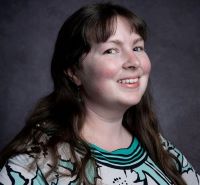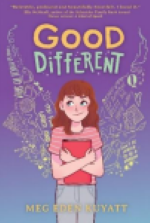As Selah later discovers, she is neurodivergent, a term used to describe people whose brains process information in an atypical way. Once she learns that, she is able to accept, manage, and celebrate the differences she often struggles with. Kuyatt explains that autism, a condition within the neurodivergent realm, can often be misdiagnosed, especially in females. Certain behaviors, such as picky eating or sensory sensitivities, tend to be diagnosed with other things, including ADHD, social anxiety disorder, schizophrenia, and bipolar disorder, among other things. According to Kuyatt, “There are a lot of misdiagnoses that can happen. In part because there is just still so much we are learning about how brains work and a lot of these categories have a lot of overlap…” As a society, we tend to group people by normal and not normal and a lot of stigma is attached to those individuals who deviate from what’s considered normal. Kuyatt remarked, “I think it would do such a load of good if we tried to complexify that a little bit more and not just have those categories because I think it puts a lot of people into a fear of having to try to fit a normal mold. It’s just not sustainable and doesn’t work for them.”
Going forward, it’s Kuyatt’s hope that Good Different will not only be enjoyed by a wide range of readers, but can also function in schools and classrooms. There are a variety of ways her book can be used for teaching. For instance, Kuyatt suggests using it as a creative writing tool or as a launching pad for students to write their own stories. It can also be utilized in book discussions to learn about and examine neurodiversity. Moreover, it can help to encourage students to step outside of their comfort zone and write their own poetry. “We have all these weird preconceptions about what poetry is and I love when we can open that up… students can see that poetry can be for me. Poetry can be a way that I can process the world around me. I can reflect, I can slow down, I can discover. Like, it is such a cool tool… somehow we have set this message that [poetry has] to have all these complicated meanings. It’s like a puzzle and it shouldn’t be a puzzle… It can be whatever you want it to be.”

I think it’s beautiful that we have all these different types of brains and these different ways we can contribute to the world.”


Mom, why do we have to care so much about normal?

Podcast: Play in new window | Download
Subscribe: RSS

Want to join the discussion?
Feel free to contribute!